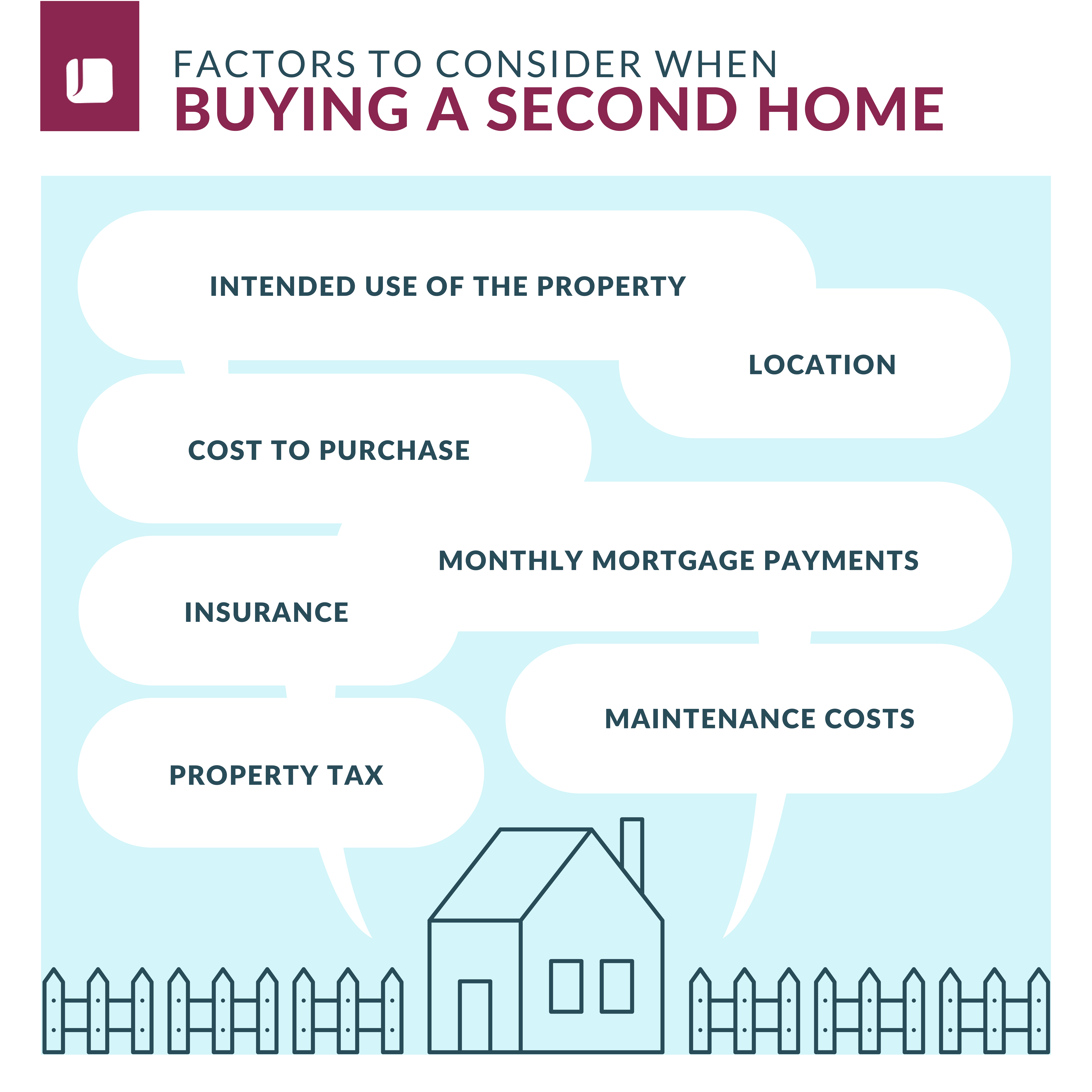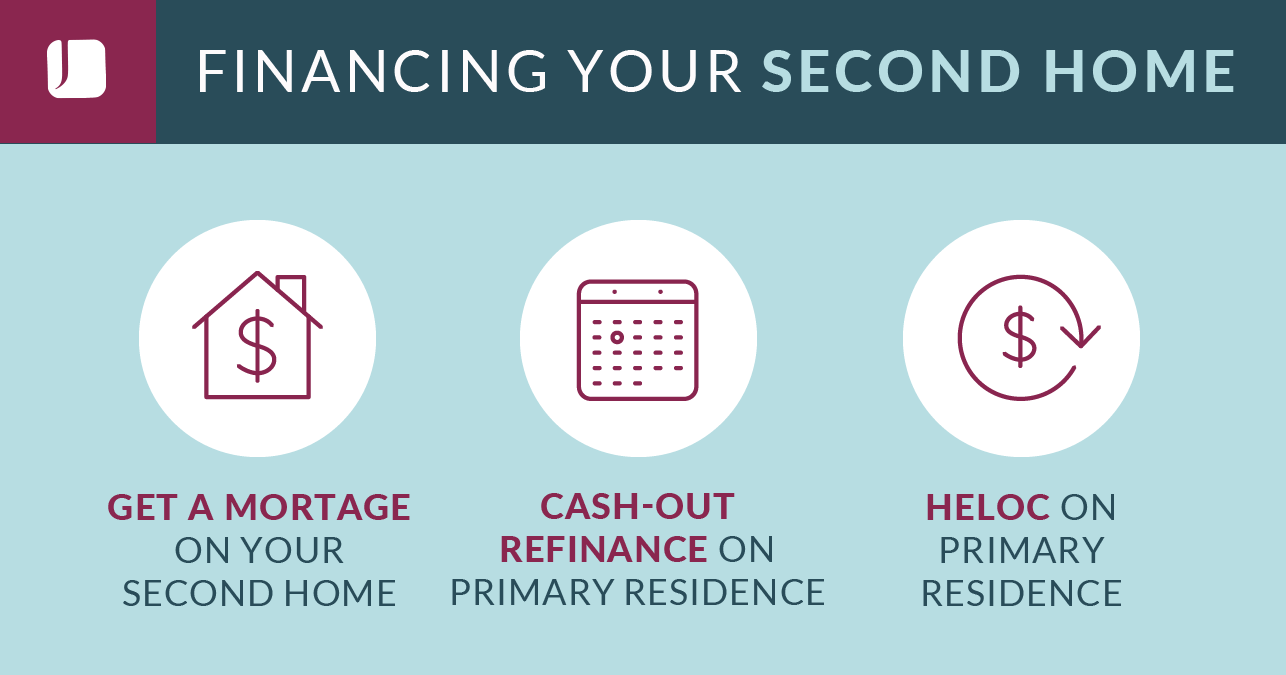SUMMARY
Whether you’re looking for a vacation retreat, an investment property or a place to retire, this guide provides you with the knowledge needed to buy a second home with confidence.
Buying or Building a Home
5 minute read time
Whether you’re looking for a vacation retreat, an investment property or a place to retire, this guide provides you with the knowledge needed to buy a second home with confidence.
Buying a second home can be an exciting venture, whether it's for personal use or as an investment opportunity. However, it requires careful planning and consideration to ensure it’s a successful and fulfilling endeavor. From determining your financial readiness to selecting the right location and property type, there are several essential steps and factors to consider when embarking on the journey of purchasing a second home. Here’s everything you need to know:
First and foremost, it’s crucial to understand the difference between second homes and investment properties. This distinction will impact various aspects of your homebuying journey, such as financing options, and your overall lifestyle once you become a second homeowner. The primary difference between a second home and an investment property lies in the intended use of the purchase:
Second homes and investment properties are also subject to different requirements from lenders. Mortgages for investment properties typically come with higher interest rates and include a variety of other factors, like putting down a larger down payment. If you’re unsure if your home would classify as a true second home or investment property, you can discuss this with a mortgage lender.
Purchasing a second home has its pros and cons. On one hand, it offers a vacation retreat and potential investment opportunities. On the other hand, it comes with increased costs and responsibility. Careful consideration of these advantages and disadvantages is necessary before taking the plunge into second homeownership:
| Second Home Pros | Second Home Cons |
| Having a designated place to call home in an area you enjoy visiting | The expenses associated with owning a second home, including mortgage payments, property taxes and insurance |
| Convenience of having all your necessities readily available, allowing you to fully enjoy your stay upon arrival | Dealing with the challenges of maintaining and managing the property from a distance |
| Opportunity to build equity in a property that can appreciate over time | Inability to be physically present to address any issues or emergencies that may arise |

Before finalizing your decision to purchase a second home, it's crucial to carefully consider a few factors. These considerations will determine if buying a second home aligns with your needs and financial situation. Here are a few things to keep in mind:
Consider whether it is in an area you genuinely love and want to spend time in. Think about the proximity to amenities, attractions and the overall lifestyle the location offers.
Determine how you plan to use the second home. Will it be solely for personal use or do you intend to rent it out as a vacation property? Understanding your intended use will impact factors such as location, property size and potential rental income.
Evaluate the total cost of purchasing the second home, including the down payment, closing costs and any additional fees associated with the transaction. Ensure you have a clear understanding of the financial commitment required upfront.
Consider the impact of monthly mortgage payments on your budget. Calculate the estimated mortgage amount based on the purchase price, interest rate and loan term. You’ll want to be sure you can comfortably afford these payments without straining your finances.
Explore the insurance options available for your second home. Depending on the location and intended use, you may need additional coverage such as vacation rental insurance or flood insurance. Factor in the cost of insurance premiums when assessing the overall affordability.
Research the property tax rates in the area where you plan to purchase the second home. Property taxes can vary significantly from one location to another and can significantly impact your ongoing expenses. Consider the potential increase in property taxes over time as well.
Understand the potential maintenance and upkeep costs associated with owning a second home. These expenses can include routine maintenance, repairs, landscaping and any necessary renovations. Additionally, if you're not residing in the area, you may need to hire property management services, which can add to the overall maintenance costs
By carefully considering these factors, you can make an informed decision about whether buying a second home is the right choice for you. Connect with a mortgage loan officer so you can determine if buying a second home is the right next step or come up with a plan for when you’re ready.
To ensure a smooth and successful process, it's crucial to initiate a conversation with a knowledgeable mortgage loan officer. We recommend using a loan officer who knows the area well or has experience financing property in that state. By discussing your financial goals, current financial situation and desired property, you can gain valuable insights into the financing options available to you. This step can help you understand the financial implications of purchasing a second home and enable you to make informed decisions throughout the process.
Tip: You should budget for not only the purchase price but also the furnishings, upkeep and maintenance of your second home.
Securing mortgage pre-approval is an essential step in the second home buying process. By obtaining pre-approval, you gain a clear understanding of your budget and the amount you can comfortably borrow. This pre-approval not only strengthens your position as a serious buyer but also provides you with a competitive edge when negotiating with sellers. With a pre-approval letter in hand, you can confidently explore the market, knowing that you have the financial backing to make a strong offer.
Choosing a REALTOR® may look a little different compared to buying your first home, depending on the location you’re buying in. No matter if you’re buying locally for an investment property or in another state for a vacation home, you should pick a REALTOR® who knows the area well. Your REALTOR® should be able to tell you about the neighborhood and other important information about the area.
Once you start working with your REALTOR®, you’ll begin the search for your second home or investment property! Your REALTOR® will walk you through the steps of finding your perfect home and helping you close the deal. Once you’ve signed the dotted line, you’ll finalize the financing process with your mortgage loan officer.

Just as much as you deserve your perfect home, you deserve financing options that align with your needs. Here are three options we recommend when purchasing your second home:
Beginning to search for a second home and need guidance on financing? Connect with a mortgage lender to learn more.
Loans are subject to credit and property approval, bank underwriting guidelines, and may not be available in all states. Other loan programs and pricing may be available. Conditions, terms, and restrictions, including property and flood insurance, will vary based on loan program selected and property location.